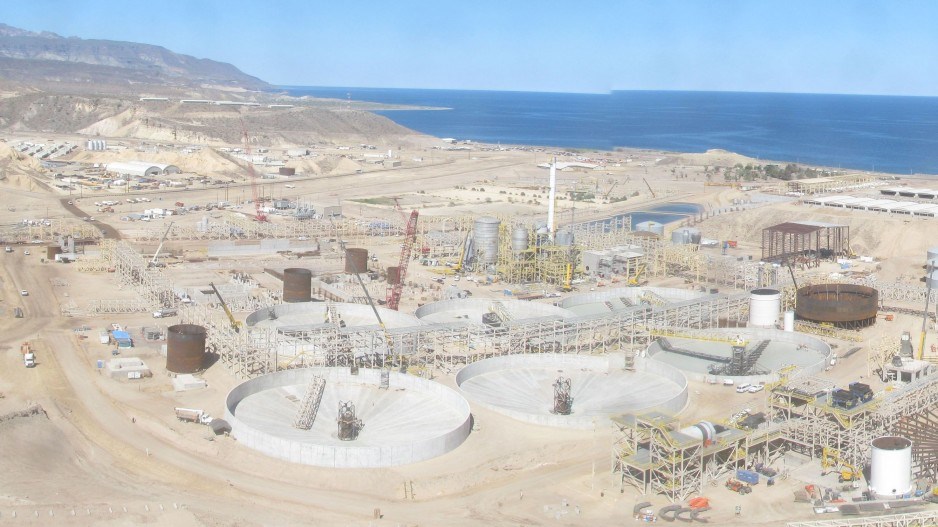It may be18 months behind schedule and $750 million over budget, but the Minera y Metalúrgica del Boleo copper mine in Mexico is finally producing copper.
Even the interim CEO of Baja Mining Corp. (TSX-V:BAJ), the Vancouver company that started the project but which is now a minority partner, admits he had doubts about the project, which has suffered numerous problems and setbacks.
The Boleo mine story reads a bit like a French farce marred by bad planning, bad blood and bad luck, including the accidental deaths of two senior executives for the Korean company that ended up owning a majority stake in the project.
“I’ve been around for a very long time in the mining industry – pretty much all over the world for 50 years – and I’ve never seen anything like it,” said Tom Ogryzlo, who stepped in as “interim” CEO of Baja in May 2012, not long after the company’s founder was forced to resign.
The project was staked in the 1990s by Baja founder John Greenslade. In 2010, Baja raised $1 billion and started construction on the Boleo mine on the Baja California peninsula of Mexico.
Baja Mining has since seen its stake in the Boleo mine project diluted down from 70% to 10%, as other partners assumed the project’s over-runs.
In 2012, Baja management announced an audit had found the project’s costs had been dramatically miscalculated. Originally projected to cost $1.25 billion to build, Ogryzlo said the final cost came in at around $2 billion.
He calculates it is also 18 months behind schedule, which put it into production just as copper prices hit a five-year low.
Even before revelations that the project had been underestimated broke, a nasty proxy battle had been brewing between Baja’s directors and Mount Kellett Capital Management LP, a New York investment firm that was a 20% Baja shareholder.
After it was discovered that the project’s cost had been underestimated, Greenslade was forced to resign. Several other Baja directors also resigned, including Ogryzlo, who later agreed to return to the board and assume the role of interim CEO.
Mount Kellett ended up taking a bath after Baja’s shares crashed. According to Ogryzlo, the New York investment firm had bought into Baja at $1 per share and sold them at $0.01 per share.
The project was only salvaged when a consortium of Korean companies that owned a minority stake in the Boleo project agreed to finance the shortfall, assuming controlling interest and diluting Baja’s share in the project to 10%. Korea Resources Corp. (Kores) ended up owning a majority stake in the project.
In 2014, Baja delisted from the TSX, moving to the TSX Venture Exchange.
Ogryzlo attributes much of the mine’s problems to a lack of on-the-ground experience.
“I think there was really a lack of experience and focus on the progress of the project in the field in the early part, so therefore there were a lot change orders that came out, a lot of things that conceptually were made different, and it just got away,” Ogryzlo said.
The project also suffered from plain bad luck.
In September 2014, two Korean executives – the chairman of Kores and the COO of the Minera y Metalúrgica del Boleo – were killed when a hurricane caused a flash flood in the coastal town where the two men were staying and swept the SUV they were in into the harbour.




